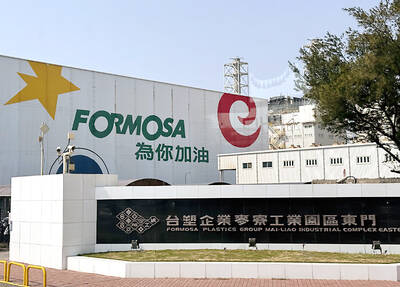Revenue growth for Taiwanese telecom operators could accelerate to 4 percent this year as faster technology upgrades may help boost usage of data-oriented services, market researcher International Data Corp (IDC) said yesterday.
This growing trend would help counter broader downward pressures suffered by most sectors in Taiwan — especially manufacturers of electronics — as consumer and corporate spending contracts amid the economic downturn, IDC said.
Led by Chunghwa Telecom Co (中華電信), local telecom companies could make US$10.69 billion in revenues this year, up 3.9 percent from US$10.28 billion last year, IDC said.
Last year, revenues increased 3.2 percent, IDC said.
“The nation’s telecom sector has been little affected by the economic downturn,” IDC analyst Alan Tsao (曹永暉) told reporters on the sidelines of a press conference in Taipei yesterday.
“The main driver is the launch of new services using advanced technologies, such as location-based services,” Tsao said.
In recent years, local telecom companies have invested actively on building infrastructure using advanced technologies, graduating from second-generation (2G) to third-generation (3G) and then to 3.5G and WiMAX, enabling the introduction of more data-oriented services to offset falling revenues, Tsao said.
Supported by advanced technology and increased bandwidth, telecom companies have been able to offer new services and packages for smart handheld devices or netbooks to promote data usage, Tsao said.
Chunghwa Telecom’s sales of Apple Inc’s iPhone set an example, he said.
Telecom companies are gradually lowering prices for data services on smart phones to encourage more usage, Tsao said.
This year, data services could take a bigger share of revenues, reaching 11 percent or 12 percent, from 10 percent last year, Tsao said.
Backed by aggressiveness in bundling smart handheld devices with new service packages, revenues of smartphones including the iPhone and HTC Corp’s (宏達電) Touch Diamond series could experience double-digit growth this year from last year, Tsao said, without providing figures.
Health and emergency dispatching services via mobile phones on the WiMAX network are also becoming more popular and represent a promising growth area for local carriers, Tsao said.
Taiwan’s WiMAX license holders are scheduled to launch commercial services this summer. Many government-backed broadband projects using WiMAX technology began offering high-speed services last year.

EXTRATERRITORIAL REACH: China extended its legal jurisdiction to ban some dual-use goods of Chinese origin from being sold to the US, even by third countries Beijing has set out to extend its domestic laws across international borders with a ban on selling some goods to the US that applies to companies both inside and outside China. The new export control rules are China’s first attempt to replicate the extraterritorial reach of US and European sanctions by covering Chinese products or goods with Chinese parts in them. In an announcement this week, China declared it is banning the sale of dual-use items to the US military and also the export to the US of materials such as gallium and germanium. Companies and people overseas would be subject to

Taiwan Semiconductor Manufacturing Co (TSMC, 台積電) founder Morris Chang (張忠謀) yesterday said that Intel Corp would find itself in the same predicament as it did four years ago if its board does not come up with a core business strategy. Chang made the remarks in response to reporters’ questions about the ailing US chipmaker, once an archrival of TSMC, during a news conference in Taipei for the launch of the second volume of his autobiography. Intel unexpectedly announced the immediate retirement of former chief executive officer Pat Gelsinger last week, ending his nearly four-year tenure and ending his attempts to revive the

WORLD DOMINATION: TSMC’s lead over second-placed Samsung has grown as the latter faces increased Chinese competition and the end of clients’ product life cycles Taiwan Semiconductor Manufacturing Co (TSMC, 台積電) retained the No. 1 title in the global pure-play wafer foundry business in the third quarter of this year, seeing its market share growing to 64.9 percent to leave South Korea’s Samsung Electronics Co, the No. 2 supplier, further behind, Taipei-based TrendForce Corp (集邦科技) said in a report. TSMC posted US$23.53 billion in sales in the July-September period, up 13.0 percent from a quarter earlier, which boosted its market share to 64.9 percent, up from 62.3 percent in the second quarter, the report issued on Monday last week showed. TSMC benefited from the debut of flagship

TENSE TIMES: Formosa Plastics sees uncertainty surrounding the incoming Trump administration in the US, geopolitical tensions and China’s faltering economy Formosa Plastics Group (台塑集團), Taiwan’s largest industrial conglomerate, yesterday posted overall revenue of NT$118.61 billion (US$3.66 billion) for last month, marking a 7.2 percent rise from October, but a 2.5 percent fall from one year earlier. The group has mixed views about its business outlook for the current quarter and beyond, as uncertainty builds over the US power transition and geopolitical tensions. Formosa Plastics Corp (台灣塑膠), a vertically integrated supplier of plastic resins and petrochemicals, reported a monthly uptick of 15.3 percent in its revenue to NT$18.15 billion, as Typhoon Kong-rey postponed partial shipments slated for October and last month, it said. The